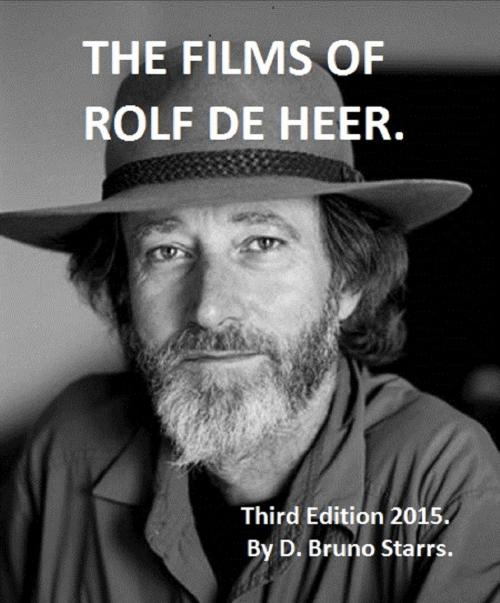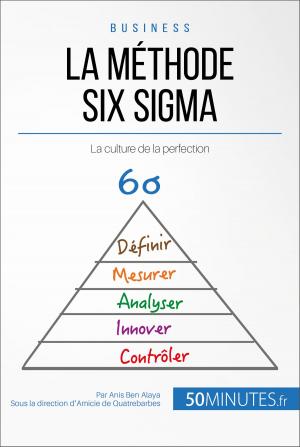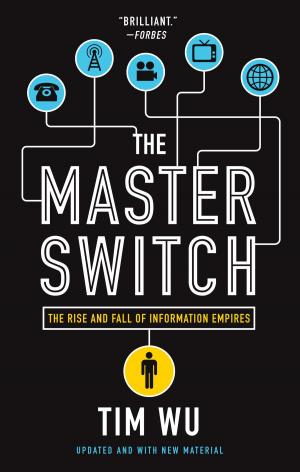The Films of Rolf de Heer (Third Edition)
Biography & Memoir, Artists, Architects & Photographers, Nonfiction, Art & Architecture, Business & Finance, Industries & Professions, Industries| Author: | Dr D. Bruno Starrs | ISBN: | 9781301863440 |
| Publisher: | Dr D. Bruno Starrs | Publication: | January 1, 2013 |
| Imprint: | Smashwords Edition | Language: | English |
| Author: | Dr D. Bruno Starrs |
| ISBN: | 9781301863440 |
| Publisher: | Dr D. Bruno Starrs |
| Publication: | January 1, 2013 |
| Imprint: | Smashwords Edition |
| Language: | English |
Dutch-born Australian director, Rolf de Heer, is Australia’s most successful and unpredictable film-maker, with fifteen feature films of widely varying style and genre to his name. Arising from the author’s 2006 – 2009 PhD research at the Queensland University of Technology (which focused on the psychoanalytic use of sound in his films), and a fixed term Research Fellowship at the National Film and Sound Archive in Canberra, Australia, “Dutch Tilt, Aussie Auteur: The Films of Rolf de Heer” was first published in 2009 in paperback by VDM in Saarbrucken, Germany, but is now only available in e-book versions.
Simply re-titled "The Films of Rolf de Heer (3rd Edition)", this latest update addresses de Heer’s additional film-making until 2015, and as with the first two editions, is an auteur analysis of all the feature films he has directed (and mostly written and produced). The book explores the theoretical instability of the concept of auteurism and concludes that there is a signature world view to be detected in his oeuvre, and that de Heer (quite possibly unconsciously) promotes unlikely protagonists who are non-hyper masculine, child-like and nurturing, as opposed to the typical Hollywood hero who is macho, exploitative and hyper masculine.
Rolf de Heer was born in Heemskerk, Holland, in 1951 and migrated to Australia with his family in 1959. He spent seven years working for the ABC before gaining entry to Australia’s Film, Television and Radio School, where he studied Producing and Directing. From his debut feature film after graduating, the children’s story about the restoration of a Tiger Moth biplane, “Tail of a Tiger” (1984) to his breakout cult sensation “Bad Boy Bubby” (1993) which “tore Venice [Film Festival] apart” to the first Aboriginal Australian language film “Ten Canoes” (2006) which scooped the pool at the Australian Film Institute awards, de Heer has consistently proven himself unpredictable. This analysis of his widely disparate films, however, suggests that Australia’s most innovative film-maker has a signature pre-occupation with giving a voice to marginalised, non-hyper masculine protagonists. Demonstrating a propensity to write and direct in a European-like style, his ‘Dutch tilt’ is very much not Hollywood, but is nevertheless representative of a typically Aussie world-view.
Praise for the first edition of "Dutch Tilt, Aussie Auteur: The films of Rolf de Heer":
“A valuable contribution on auteur cinema as it has developed ‘down under’ over the last 20 years” - Professor Terry Flew, Queensland University of Technology.
“It is hard to fathom that up until now there has been no academic reference on influential and groundbreaking Australian director Rolf de Heer [ … ] Dr Bruno Starrs has remedied the injustice with a comprehensive academic text” - Sarah Jane Lamont, Film Ink.
“Starrs succeeds in demonstrating how de Heer engages his audience in an experience of marginalisation, of seeing and hearing what the white Australian world looks and sounds like from the outside” - Tom Redwood, Real Time Arts.
“‘Dutch Tilt, Aussie Auteur: The Films of Rolf de Heer’ is well researched and offers much in the way of interpretive analysis of de Heer’s unique style [ … ] The language used is clear and easy to understand, the content informative and educational” - Danielle Mulholland, M/C Reviews: Media and Culture.
Dutch-born Australian director, Rolf de Heer, is Australia’s most successful and unpredictable film-maker, with fifteen feature films of widely varying style and genre to his name. Arising from the author’s 2006 – 2009 PhD research at the Queensland University of Technology (which focused on the psychoanalytic use of sound in his films), and a fixed term Research Fellowship at the National Film and Sound Archive in Canberra, Australia, “Dutch Tilt, Aussie Auteur: The Films of Rolf de Heer” was first published in 2009 in paperback by VDM in Saarbrucken, Germany, but is now only available in e-book versions.
Simply re-titled "The Films of Rolf de Heer (3rd Edition)", this latest update addresses de Heer’s additional film-making until 2015, and as with the first two editions, is an auteur analysis of all the feature films he has directed (and mostly written and produced). The book explores the theoretical instability of the concept of auteurism and concludes that there is a signature world view to be detected in his oeuvre, and that de Heer (quite possibly unconsciously) promotes unlikely protagonists who are non-hyper masculine, child-like and nurturing, as opposed to the typical Hollywood hero who is macho, exploitative and hyper masculine.
Rolf de Heer was born in Heemskerk, Holland, in 1951 and migrated to Australia with his family in 1959. He spent seven years working for the ABC before gaining entry to Australia’s Film, Television and Radio School, where he studied Producing and Directing. From his debut feature film after graduating, the children’s story about the restoration of a Tiger Moth biplane, “Tail of a Tiger” (1984) to his breakout cult sensation “Bad Boy Bubby” (1993) which “tore Venice [Film Festival] apart” to the first Aboriginal Australian language film “Ten Canoes” (2006) which scooped the pool at the Australian Film Institute awards, de Heer has consistently proven himself unpredictable. This analysis of his widely disparate films, however, suggests that Australia’s most innovative film-maker has a signature pre-occupation with giving a voice to marginalised, non-hyper masculine protagonists. Demonstrating a propensity to write and direct in a European-like style, his ‘Dutch tilt’ is very much not Hollywood, but is nevertheless representative of a typically Aussie world-view.
Praise for the first edition of "Dutch Tilt, Aussie Auteur: The films of Rolf de Heer":
“A valuable contribution on auteur cinema as it has developed ‘down under’ over the last 20 years” - Professor Terry Flew, Queensland University of Technology.
“It is hard to fathom that up until now there has been no academic reference on influential and groundbreaking Australian director Rolf de Heer [ … ] Dr Bruno Starrs has remedied the injustice with a comprehensive academic text” - Sarah Jane Lamont, Film Ink.
“Starrs succeeds in demonstrating how de Heer engages his audience in an experience of marginalisation, of seeing and hearing what the white Australian world looks and sounds like from the outside” - Tom Redwood, Real Time Arts.
“‘Dutch Tilt, Aussie Auteur: The Films of Rolf de Heer’ is well researched and offers much in the way of interpretive analysis of de Heer’s unique style [ … ] The language used is clear and easy to understand, the content informative and educational” - Danielle Mulholland, M/C Reviews: Media and Culture.















